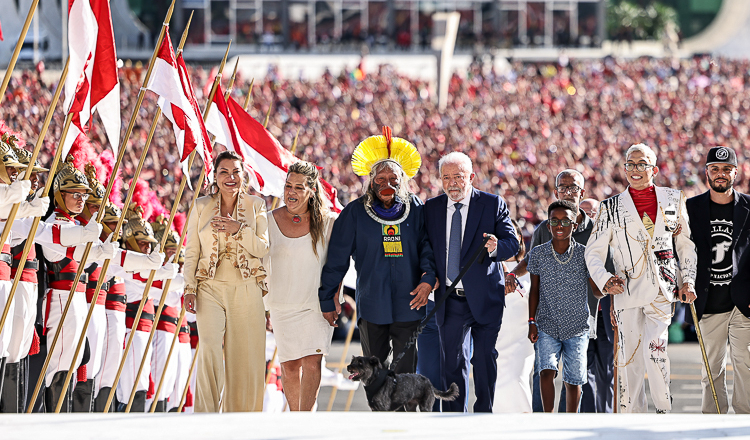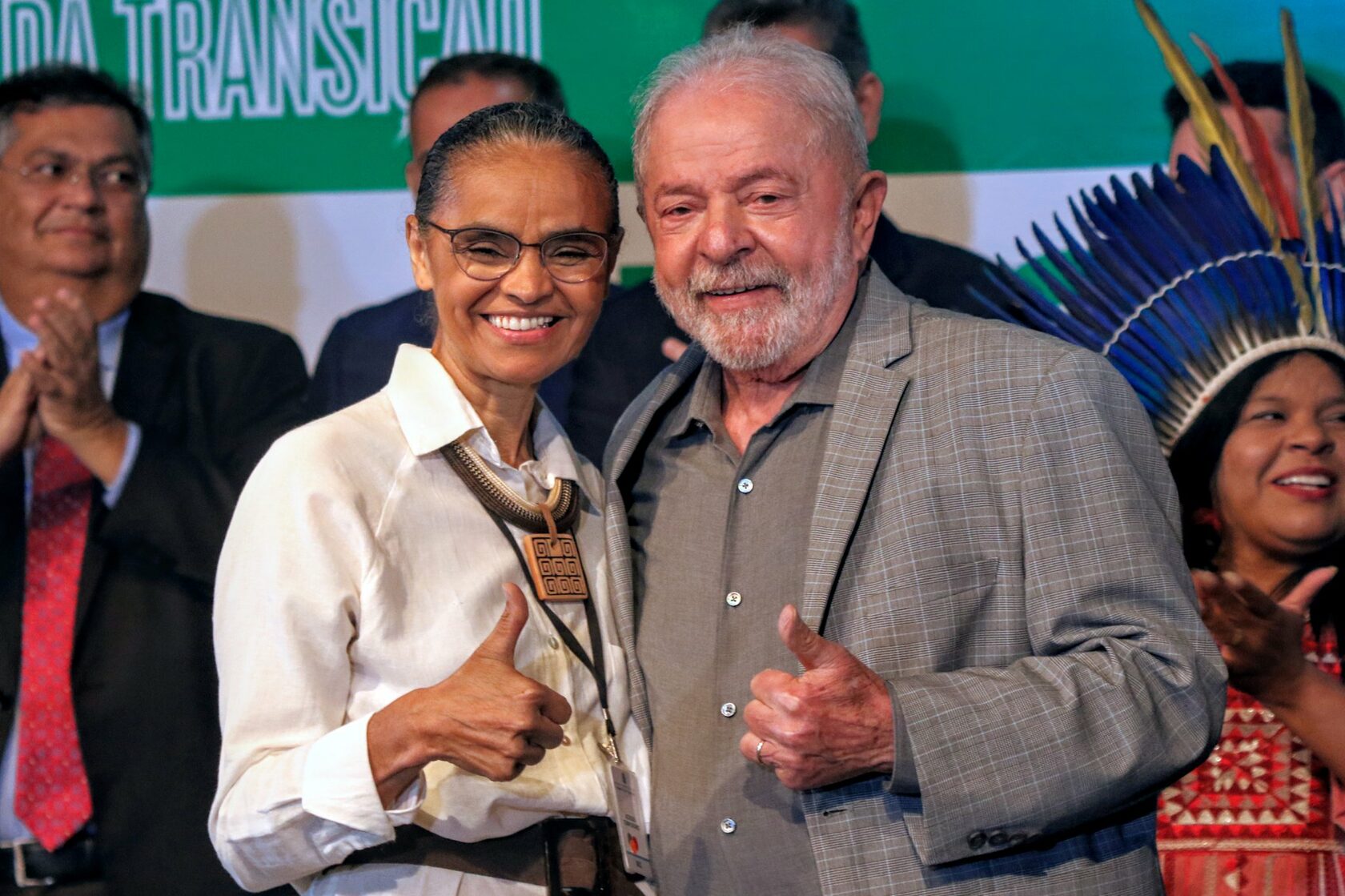The act is symbolic of the fact that the democratically elected president, the country's highest authority and personification of power, takes office, corroborated by leaders of socio-environmental movements and representatives of minority social groups who, over the years, have been stigmatized, made invisible and relegated to the margin of civil rights, especially in recent years. The presidential sash passed from hand to hand until it reached the president. In all this allegory, a message persists: Lula was elected by the people and, therefore, must govern for all, with special attention to the poorest and minorities, which includes areas underestimated by the previous government, such as culture, environment and social assistance. .
It is the third time that Lula has assumed the presidency of the republic and now returns after four years of Bolsonaro's government, characterized by political setbacks and disasters in public management. Nor can we forget the three years in which Michel Temer took over the presidency after the impeachment of Dilma Rousseff, in an equally dark administration as that of Bolsonaro.
“Today, our message to Brazil is one of hope and reconstruction. The great edifice of rights, sovereignty and development that this Nation built since 1988 has been systematically demolished in recent years. It is to rebuild this edifice of national rights and values that we are going to direct all our efforts”, said the president-elect.
Indeed, the last few years have not been easy for Brazil: the return of poverty, the dismantling of democracy and the covid-19 pandemic, just to name a few examples. Faced with so many uncertainties, Lula's return also marks the return of hope for a country with less prejudice and more social equality. The inauguration ceremony served to demonstrate representativeness, that is, the Brazilian population recognizes itself in this new government.

Concern for the environment
Even before being elected, Lula had already announced measures to protect biodiversity and mitigate the effects of climate change. Now, with only four days in his government, he has already revoked several of Bolsonaro's decrees that put the maintenance of conservation units and the protection of traditional communities and indigenous peoples at risk, for example, the decree that made prospecting more flexible in Indigenous Lands.
Among the main changes in the environmental scenario, Lula reactivated the Amazon Fund, which had been suspended in 2019 by the then Minister of the Environment, Ricardo Salles, leaving 3.2 billion reais withheld. The resumption of the Amazon Fund was one of Lula's first decisions, certainly because he recognized that it is a great investment portal for the protection of biomes, with contributions from Germany and Norway.
With the release of the fund, the resource can be applied by NGOs, federal agencies and municipal and state governments in the fight against deforestation, prevention of fires and burnings and promotion of the forestry economy, with the strengthening of sustainable productive activities.
Ministries
The current government is structured in 37 ministries, of which eleven are headed by women, a record number for a first presidential echelon. Marina Silva returns to the post of Minister of the Environment and Climate Change, a position she assumed between 2003 and 2008. At that time, under Marina's command, deforestation in the Amazon fell from 27,800 km² to 12, 9,000 km², according to monitoring by Prodes (Inpe).
Upon leaving the ministry in 2008, the rate of devastation continued to fall until 2012, when it recorded the lowest deforestation in the historical series, with a loss of 4,600 km² of forest. The 82% drop made Brazil a world reference in forest preservation and reduction of CO² emissions caused by fires and deforestation itself. After a period of relative stability, deforestation has risen again since 2018, a period that coincides with the Bolsonaro administration. Marina Silva returns, then, 15 years later, with the challenge of closing the gate of destruction, containing deforestation and putting Brazil back at the forefront of climate discussions.
The original peoples of Brazil gain, for the first time in the country's history, ministerial representation with the creation of the Ministry of Indigenous Peoples, handed over to the feisty Sônia Guajajara, federal deputy elected by the state of São Paulo. Sônia was born in the Arariboia Indigenous Land, Maranhão, and became known worldwide for her fight in defense of indigenous peoples, with emphasis on the United Nations Human Rights Council.

Amazon
With the imminence of a socio-environmental collapse and the increasing effects of climate change, the eyes of the world are turning to the Amazon and the biome should receive special attention from the new government. Lula intends to schedule the Amazon Summit for the first half of the year, which will bring together presidents and representatives of the nine countries that are home to the Amazon rainforest: Brazil, Bolivia, Peru, Ecuador, Colombia, Venezuela, Guyana, France (French Guiana) and Suriname.
To ensure the achievement of global goals, Lula said that he intends to eliminate deforestation in the Amazon and the emission of greenhouse gases in the electrical matrix, while encouraging the reuse of degraded pastures. “We will encourage prosperity in the land. Freedom and opportunity to create, plant and harvest will continue to be our goal. What we cannot admit is that it is a lawless land. We will not tolerate violence against small children, deforestation and environmental degradation, which have already caused so much harm to the country”, he said.
